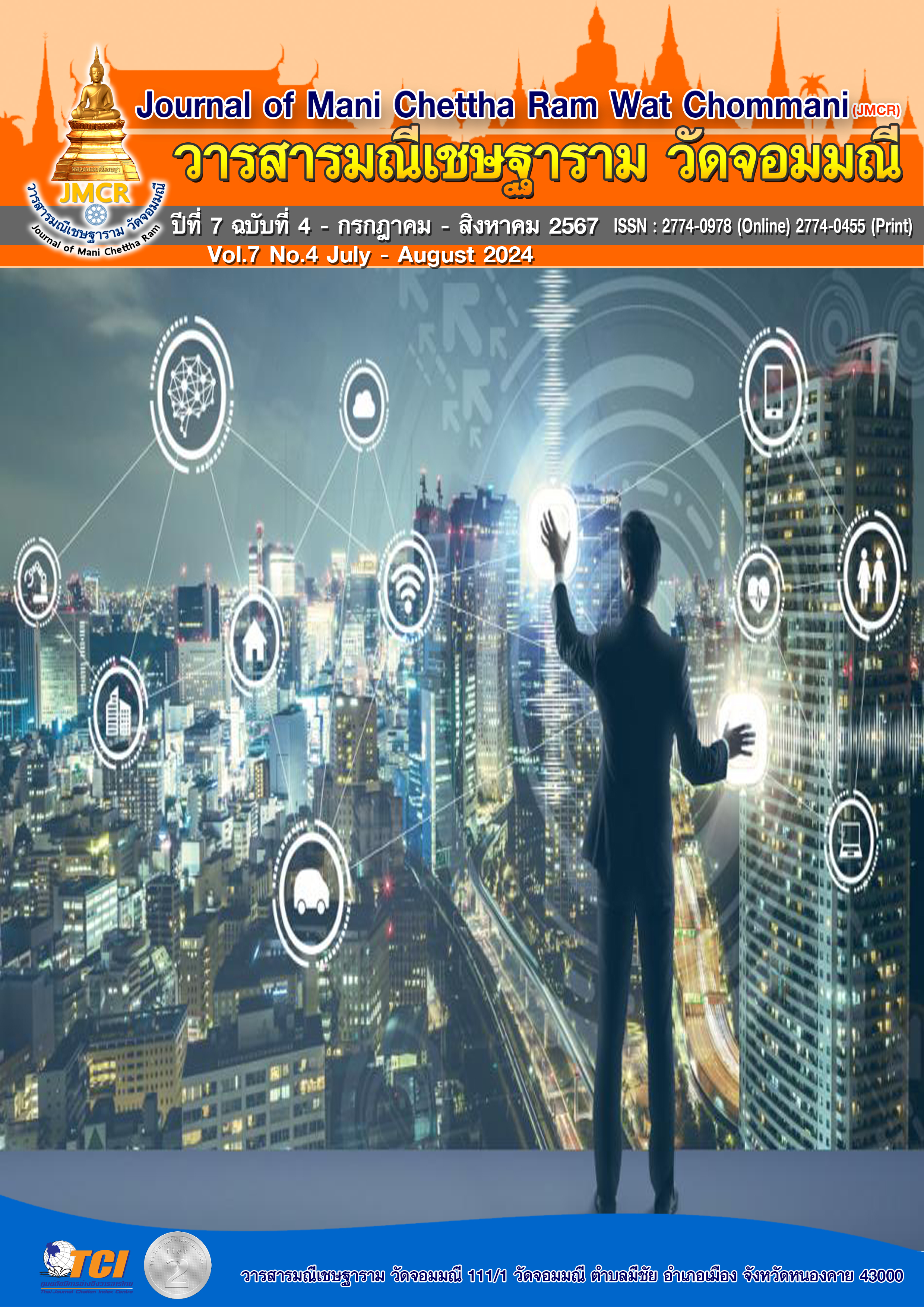DEVELOPING READING COMPREHENSION SKILLS FOR GRADE 2 STUDENTS LOEI PITTAYAKOM SCHOOL USING INTERACTIVE NOTEBOOK IN CONJUNCTION WITH THE AKITA ACTIVE LEARNING MANAGEMENT MODEL
Keywords:
Developing Reading Comprehension Skills, Interactive Notebook, The Akita Active Learning Management ModelAbstract
The objective of this research was to 1) create and develop an innovative interactive notebook on developing reading comprehension skills of students in grade 2 of Loei Pittayakom School by using an interactive notebook in combination with an active learning management model based on the Akita concept to be 80/80 effective, and 2) to compare academic achievement between pre-school and post-school. Subject: Developing reading comprehension skills of Grade 2 students at Loei Pittayakom School using Interacve Notebook in combination with an active learning management model according to the Akita concept The target group for the research was 12 students in grade 2/7 of Loei Pittayakom School in the academic year 2023 obtained by purposive sampling. Statistics used for data analysis include percentage, mean , standard deviation (S.D.), E1/E2, and dependent sample t-test.
The results were found as follows : 1) Results of finding the effectiveness of Interacve Notebook Developing reading comprehension skills for Grade 2 students at Loei Pittayakom School by using Interactive Notebook in combination with an active learning management model based on the Akita concept. It has an efficiency value of E1/E2 =83.13/85.33, meeting the specified criteria of 80/80. 2) Comparison of academic achievement between pre-class and post-study Subject: Developing reading comprehension skills for Grade 2 students at Loei Pittayakom School using Interactive Notebook in combination with an active learning management model based on Akita There was a statistically significantly higher post-study achievement score than before at the .05 level.
References
กระทรวงศึกษาธิการ. (2551). หลักสูตรการศึกษาขั้นพื้นฐานพุทธศักราช 2544. กรุงเทพมหานคร: โรงพิมพ์องค์การรับส่งสินค้าและพัสดุภัณฑ์.
ธัญญารัตน์ ชื่นแสงจันทร์. (2563). ครูกับการจัดการเรียนรู้ภาษาไทยในศตวรรษที่ 21. วารสารสังคมศึกษาศาสนา และวัฒนธรรม, 1(1). 1-10.
ชวลิต ชูกำแพง. (2561). การจัดการเรียนรู้เชิงรุกตามแนวอคิตะ (AKITA Action). วารสารเทคโนโลยีและสื่อสารการศึกษา, 1(3). 18-20.
เชาว์ อินใย. (2543). ความรู้พื้นฐานเกี่ยวกับการวิจัย. เลย: มหาวิทยาลัยราชภัฏเลย.
เบญญาภา โสภณ. (2559). กิจกรรมเสริมทักษะหลักการใช้ภาษาไทย ชั้นประถมศึกษาปีที่ 2. กรุงเทพมหานคร: เบ็นภาษาและศิลปะ.
ประสาท เนืองเฉลิม. (2556). วิจัยการเรียนการสอน. กรุงเทพมหานคร: สำนักพิมพ์แห่งจุฬาลงกรณ์มหาวิทยาลัย.
วรรษมล ศุภคุณ. (2564). การพัฒนาทักษะการอ่านจับใจความด้วยหนังสือส่งเสริมการอ่านกล่มสาระการเรียนรู้ภาษาไทย สำหรับนักเรียนชั้นประถมศึกษาปีที่ 5. วารสารวิจัยรำไพพรรณี, 15(2). 48-57.
สำนักงานคณะกรรมการการศึกษาแห่งชาติ. (2562). พระราชบัญญัติการศึกษาแห่งชาติ พุทธศักราช 2542. กรุงเทพมหานคร: สำนักงานคณะกรรมการการศึกษาแห่งชาติ.
สุธาสินี ธนัฐปิตินันท์. (2566). การพัฒนาการอ่านและการเขียนภาษาไทยของนักเรียนระดับประถมศึกษาในตำบลชัยพฤกษ์ อำเภอเมือง จังหวัดเลย ด้วยนวัตกรรม Interactive Notebook. e-Journal of Education Studies, Burapha University, 5(1). 48-64.
อมรรัตน์ เทพกำปนาท. (9 ตุลาคม 2566). ออนไลน์. เข้าถึงได้จาก สมุดงานแบบโต้ตอบ:http://www.fis.ru.ac.th/home/index.php?option=com_content&task=view&id=19&Itemid=37>[30December2019




